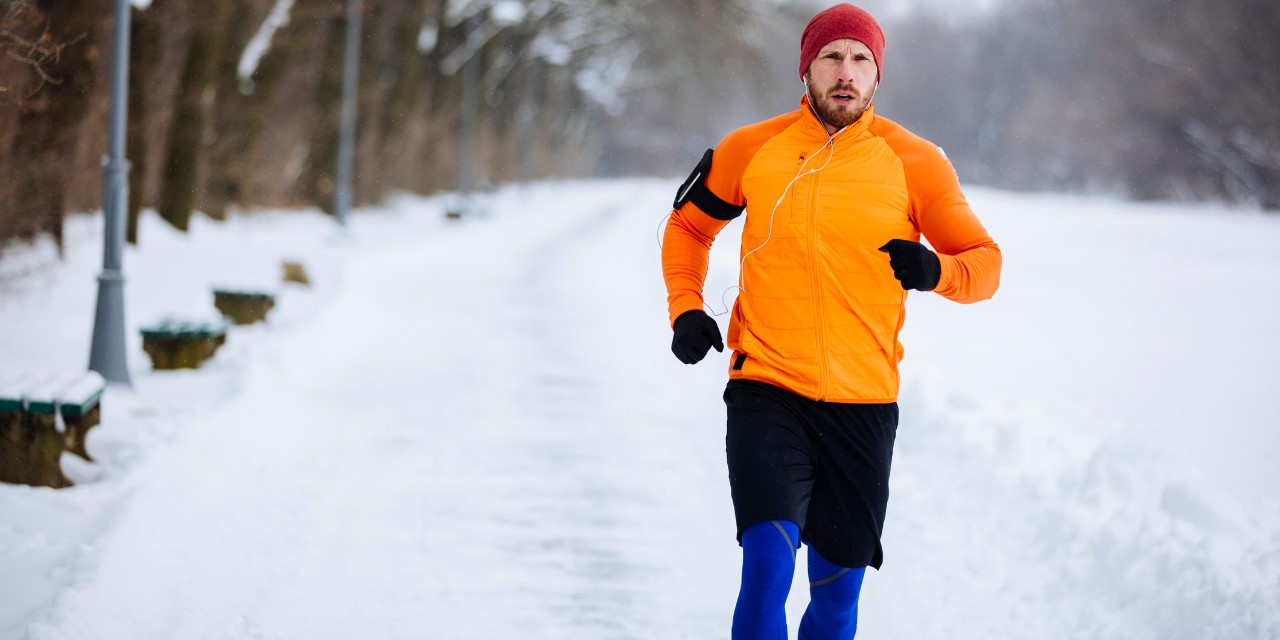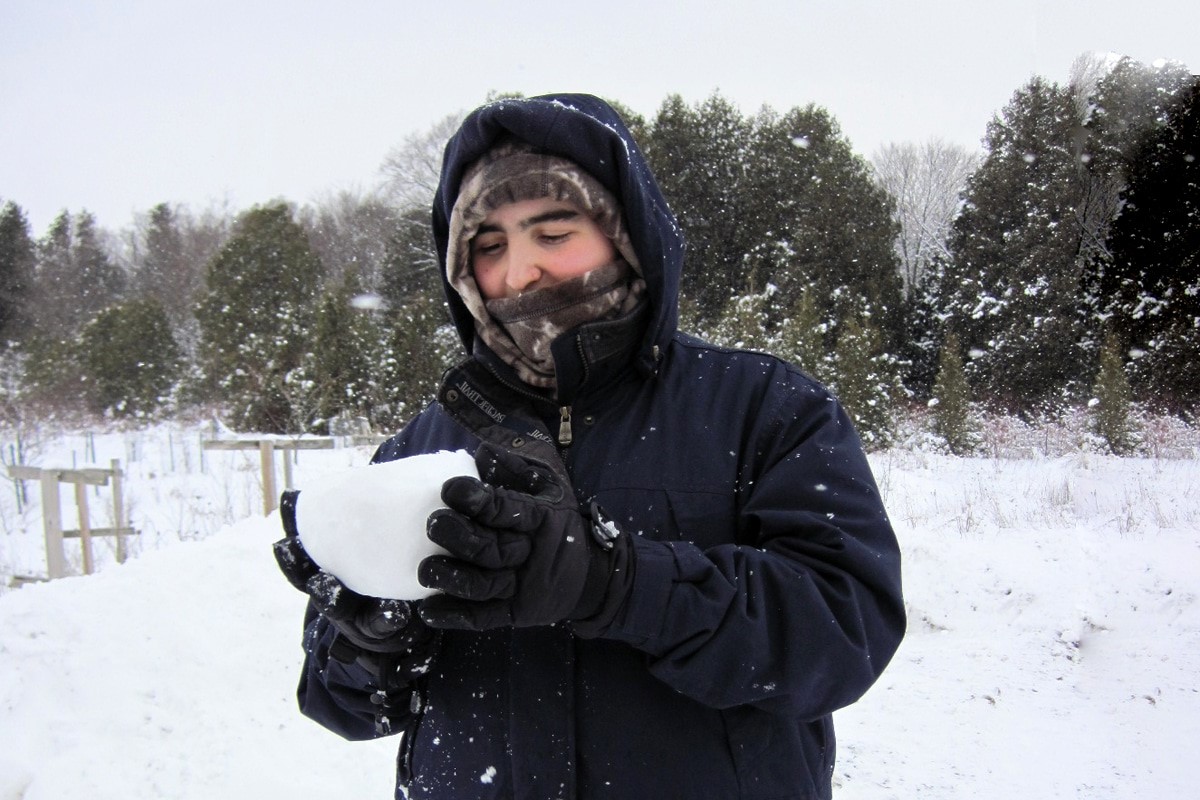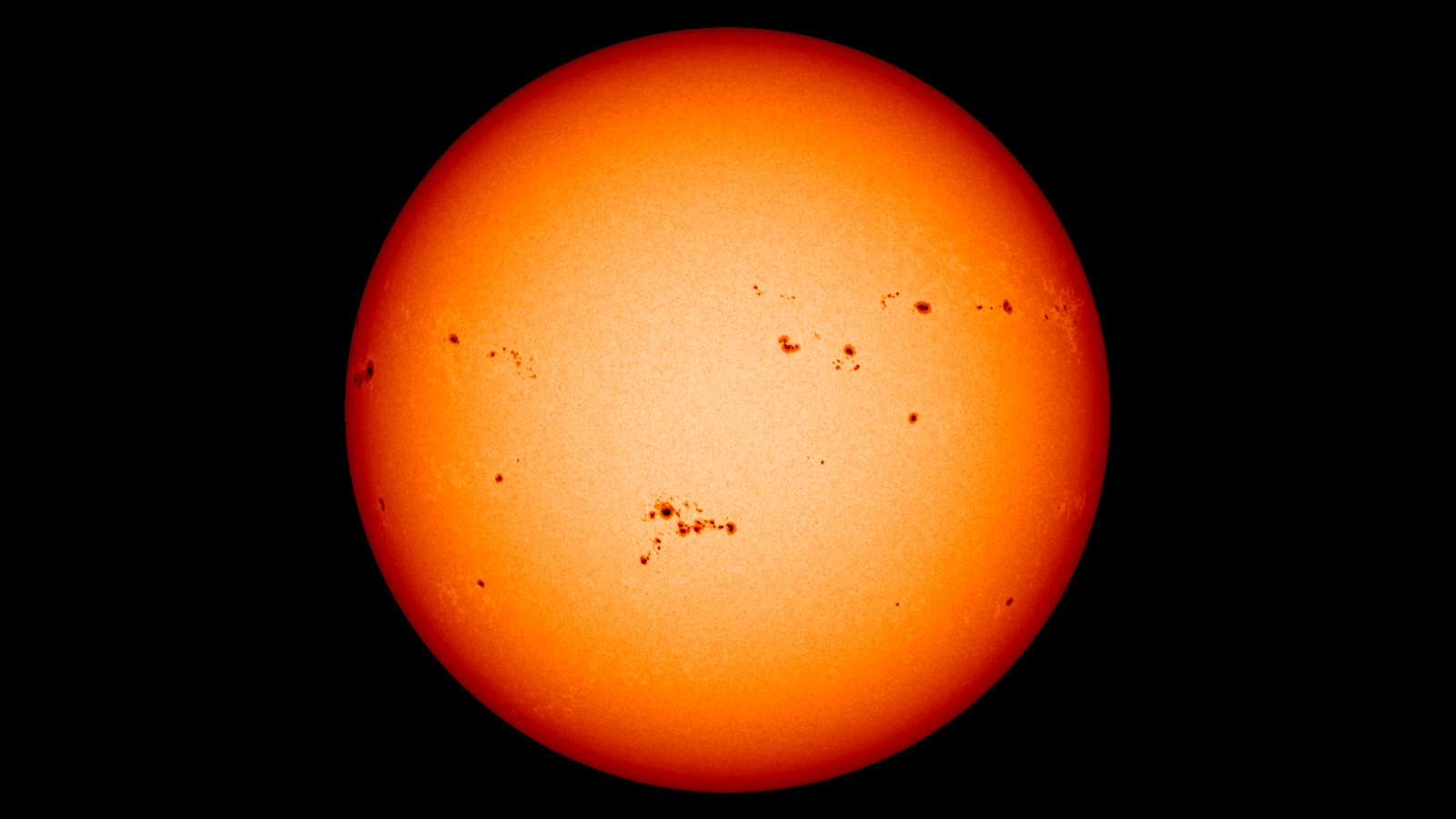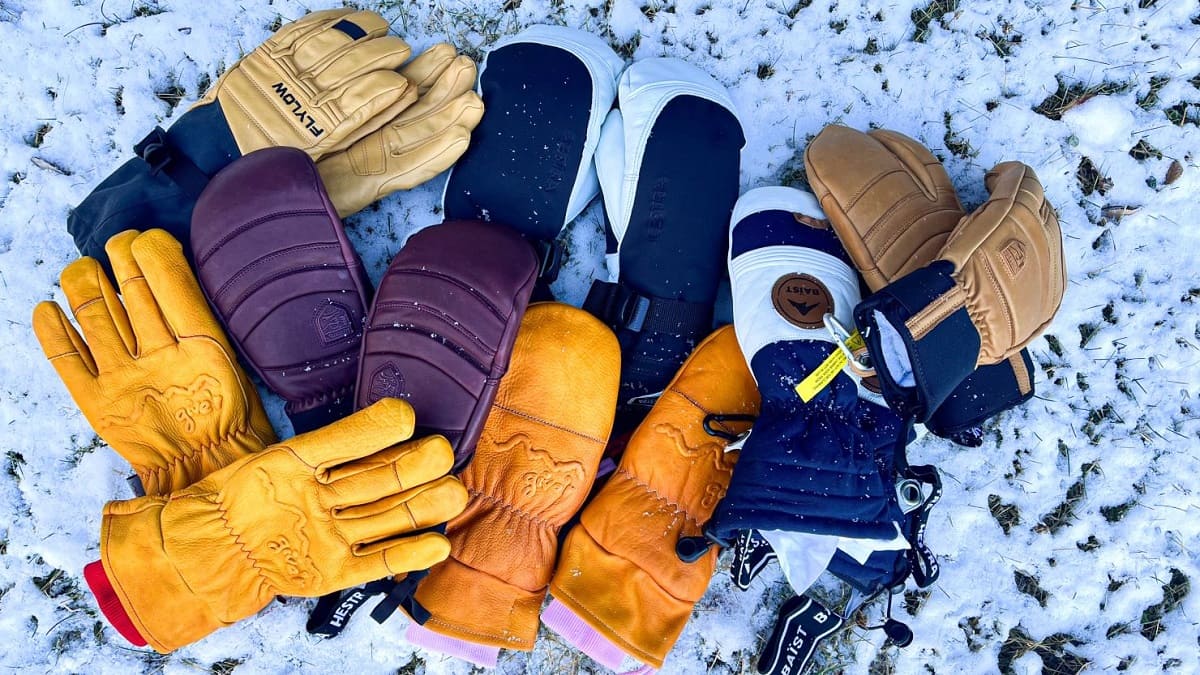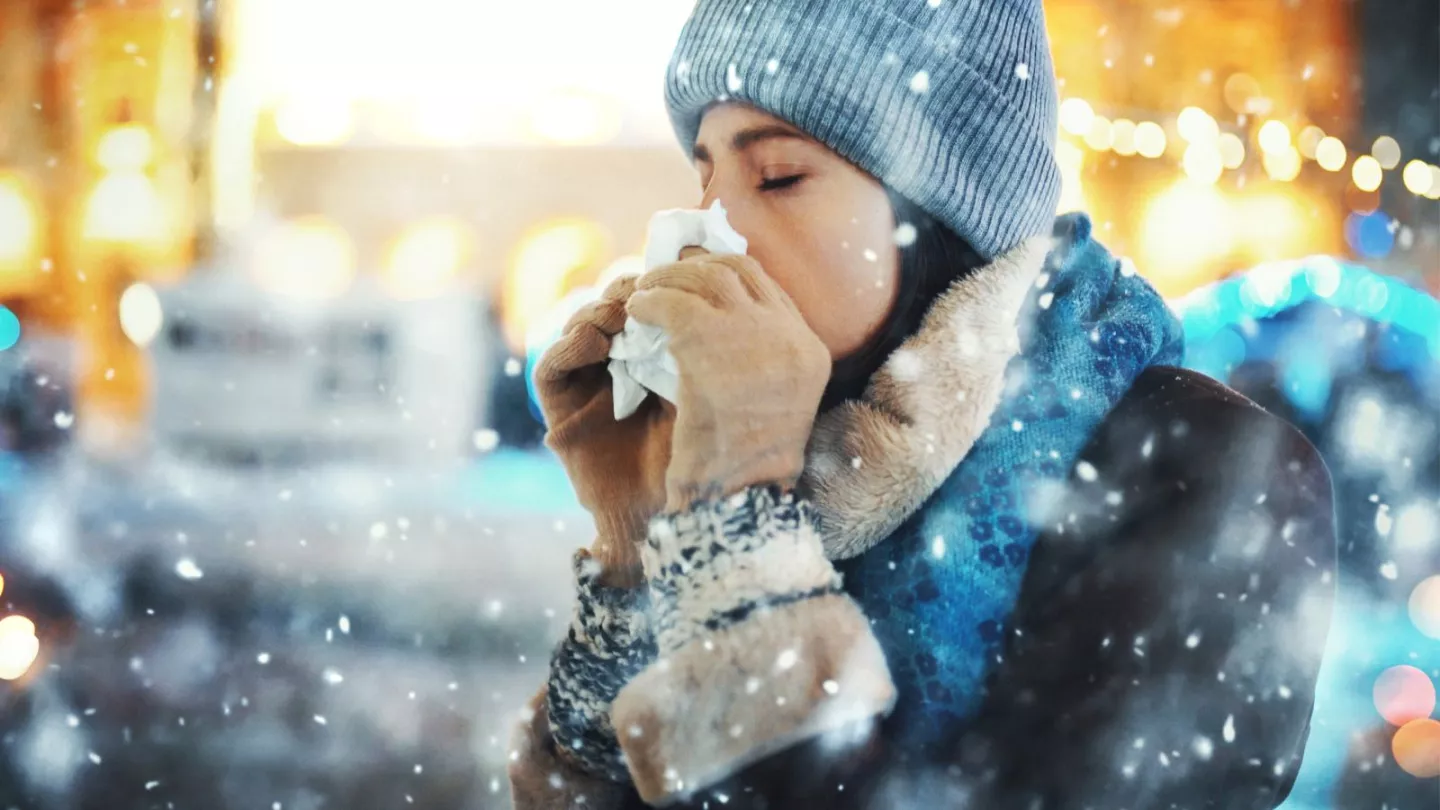Home>Weather and Climate>The Impact Of Cold Weather On The Human Body
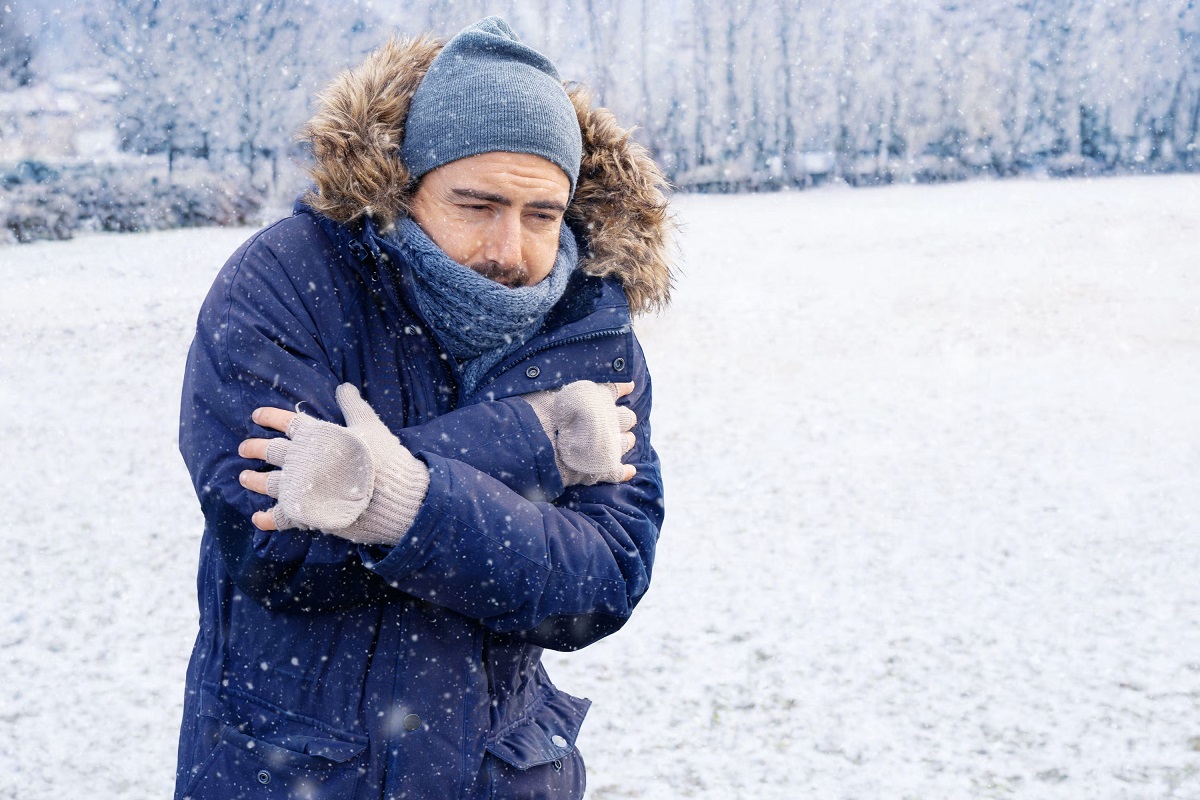

Weather and Climate
The Impact Of Cold Weather On The Human Body
Published: March 1, 2024
Discover how cold weather affects the human body and learn how to stay healthy in changing weather conditions. Explore the impact of weather and climate on your health.
(Many of the links in this article redirect to a specific reviewed product. Your purchase of these products through affiliate links helps to generate commission for Temperatures.com, at no extra cost. Learn more)
Table of Contents
Understanding the Effects of Cold Weather on the Skin
Cold weather can have a profound impact on the skin, leading to various changes and challenges. Understanding these effects is crucial for taking proactive measures to protect and maintain the skin's health during the colder months.
-
Dryness and Flakiness:
- Cold air lacks humidity, which can strip the skin of its natural oils, leading to dryness and flakiness. This can be particularly challenging for individuals with already dry or sensitive skin.
-
Chapping and Cracking:
- Exposed skin, especially on the hands and face, is susceptible to chapping and cracking in cold weather. The combination of low temperatures and harsh winds can compromise the skin's protective barrier, making it more prone to damage.
-
Irritation and Redness:
- Cold weather can trigger skin irritation and redness, especially for individuals with sensitive skin conditions such as eczema or rosacea. The abrupt changes in temperature, from cold outdoor air to heated indoor environments, can exacerbate these issues.
-
Increased Sensitivity:
- The cold can make the skin more sensitive, leading to discomfort and heightened reactivity. This can manifest as a tingling or burning sensation, particularly when exposed skin comes into contact with cold surfaces.
-
Worsening of Existing Skin Conditions:
- Individuals with pre-existing skin conditions, such as psoriasis or eczema, may experience exacerbation of their symptoms during cold weather. The dry and cold air can intensify itchiness, redness, and overall discomfort.
To mitigate these effects, it's essential to prioritize skin protection during cold weather. This includes using moisturizers with emollient properties to lock in moisture, wearing protective clothing such as gloves and scarves, and using gentle cleansers to avoid further stripping the skin of its natural oils.
Understanding the effects of cold weather on the skin empowers individuals to make informed choices in their skincare routines, ensuring that their skin remains healthy and resilient even in the face of challenging weather conditions.
How Cold Weather Affects the Respiratory System
The impact of cold weather on the respiratory system is a topic of significant concern, particularly during the winter months when individuals are exposed to chilly air and fluctuating temperatures. The respiratory system, encompassing the lungs, airways, and nasal passages, is intricately sensitive to environmental changes, making it susceptible to various effects during cold weather.
-
Airway Constriction: When inhaling cold air, the body's natural response is to warm and humidify it before it reaches the lungs. This process occurs in the nasal passages and upper airways. However, the cold air can cause the airways to constrict, leading to a sensation of breathlessness or tightness in the chest, especially for individuals with asthma or other respiratory conditions.
-
Increased Mucus Production: Cold weather can stimulate the production of mucus in the respiratory tract. While mucus plays a crucial role in trapping and removing foreign particles and pathogens, an excessive production can lead to congestion and discomfort, contributing to symptoms such as a runny or stuffy nose.
-
Exacerbation of Respiratory Conditions: Individuals with pre-existing respiratory conditions, such as asthma or chronic obstructive pulmonary disease (COPD), may experience worsening of their symptoms during cold weather. The combination of cold air and potential triggers, such as indoor allergens or respiratory irritants, can lead to increased coughing, wheezing, and shortness of breath.
-
Vulnerability to Respiratory Infections: Cold weather is often associated with an increased risk of respiratory infections, including the common cold and influenza. The cold air itself does not cause these infections, but it can weaken the body's immune response in the respiratory tract, making it more susceptible to viral and bacterial invaders.
-
Impact on Physical Activity: Cold weather can deter individuals from engaging in outdoor physical activities, leading to reduced exercise and movement. This can have indirect effects on the respiratory system, as physical activity plays a crucial role in maintaining lung function and overall respiratory health.
Understanding the effects of cold weather on the respiratory system underscores the importance of taking proactive measures to protect respiratory health during chilly periods. This includes wearing scarves or masks to warm and humidify inhaled air, staying hydrated to support mucus clearance, and seeking medical advice for managing respiratory conditions in cold weather. By being mindful of these effects, individuals can better safeguard their respiratory well-being and minimize potential discomfort associated with cold weather exposure.
The Impact of Cold Weather on the Cardiovascular System
The cardiovascular system, comprising the heart and blood vessels, is intricately linked to the body's response to cold weather. When temperatures drop, the body undergoes physiological changes to maintain its core temperature, and these adaptations can significantly impact cardiovascular health.
-
Vasoconstriction: In response to cold weather, the body initiates vasoconstriction, a process where blood vessels narrow to conserve heat. While this mechanism helps to retain warmth in vital organs, it can also lead to increased blood pressure. For individuals with existing hypertension or cardiovascular conditions, the added strain on the heart and blood vessels can pose significant health risks.
-
Increased Cardiac Workload: Cold weather can elevate the heart's workload as it strives to maintain body temperature and ensure adequate circulation. The heart pumps harder to compensate for vasoconstriction and to supply oxygen-rich blood to essential organs. This heightened cardiac activity can be particularly taxing for individuals with compromised cardiovascular function, potentially exacerbating underlying conditions.
-
Risk of Hypothermia: Prolonged exposure to cold temperatures can lead to hypothermia, a condition where the body loses heat faster than it can produce it, resulting in a dangerously low core temperature. Hypothermia can have profound effects on the cardiovascular system, including slowed heart rate and decreased cardiac output, which can compromise circulation and vital organ function.
-
Impact on Blood Clotting: Cold weather has been associated with an increased risk of blood clot formation. The combination of vasoconstriction and changes in blood viscosity due to temperature fluctuations can contribute to the development of blood clots, potentially leading to cardiovascular events such as heart attacks or strokes.
-
Exacerbation of Cardiovascular Symptoms: Individuals with cardiovascular conditions, such as coronary artery disease or heart failure, may experience worsening of their symptoms during cold weather. The combination of cold temperatures and physiological stressors can trigger angina (chest pain) or exacerbate heart failure symptoms, necessitating careful management and monitoring.
Understanding the impact of cold weather on the cardiovascular system is crucial for individuals, particularly those with existing cardiovascular conditions, to take proactive measures to safeguard their heart health during chilly periods. This includes dressing warmly to minimize heat loss, staying physically active to support cardiovascular function, and seeking medical guidance to manage any underlying cardiovascular concerns in the context of cold weather. By being mindful of these effects, individuals can better protect their cardiovascular well-being and minimize potential risks associated with cold weather exposure.
Cold Weather and its Effects on Muscles and Joints
Cold weather can exert notable effects on the musculoskeletal system, influencing the function and comfort of muscles and joints. Understanding these effects is essential for individuals to proactively manage their physical well-being during chilly periods.
-
Muscle Stiffness and Tension: In cold weather, muscles may experience increased stiffness and tension, leading to reduced flexibility and agility. The drop in temperature can impede blood circulation to the muscles, causing them to tighten and become less pliable. This can manifest as discomfort, reduced range of motion, and a heightened risk of muscle strains or injuries, particularly during physical activities.
-
Joint Pain and Discomfort: Cold weather has been associated with exacerbating joint pain, especially for individuals with arthritis or other joint-related conditions. The low temperatures can affect the viscosity of the synovial fluid within the joints, potentially leading to increased friction and discomfort during movement. Additionally, changes in barometric pressure associated with cold weather may contribute to joint pain, as the pressure differentials can impact joint tissues and nerve endings.
-
Reduced Physical Performance: Cold weather can impact physical performance, affecting muscle strength and endurance. The body may expend more energy to maintain core temperature in chilly environments, potentially leading to quicker fatigue during physical exertion. This can influence athletic performance and may necessitate adjustments in training regimens to accommodate the physiological changes induced by cold weather.
-
Risk of Hypothermia-Related Muscle Issues: Prolonged exposure to cold temperatures can pose the risk of hypothermia, which can have profound effects on muscle function. Hypothermia can lead to muscle stiffness, weakness, and even spasms, as the body's metabolic processes slow down in response to the cold. These effects can compromise motor function and coordination, posing significant challenges for individuals in cold environments.
-
Importance of Warm-Up and Protection: Recognizing the effects of cold weather on muscles and joints underscores the importance of adequate warm-up routines and protective measures. Engaging in dynamic stretching and warm-up exercises can help mitigate muscle stiffness and reduce the risk of injuries. Additionally, wearing appropriate clothing to maintain body warmth and protect the joints from direct exposure to cold air can contribute to overall comfort and joint mobility.
Understanding the impact of cold weather on muscles and joints empowers individuals to adopt proactive strategies to support their musculoskeletal health. By incorporating targeted warm-up routines, staying physically active, and prioritizing joint protection, individuals can mitigate the potential challenges posed by cold weather and maintain optimal muscle and joint function even in chilly environments.
Mental and Emotional Effects of Cold Weather on the Human Body
Cold weather can exert profound effects on the mental and emotional well-being of individuals, influencing mood, cognition, and overall psychological resilience. As the temperature drops and daylight hours diminish, the human body's response to chilly environments can encompass a spectrum of mental and emotional adjustments, shaping the individual's psychological experience during the colder months.
Seasonal Affective Disorder (SAD)
One notable mental effect of cold weather is the potential onset of Seasonal Affective Disorder (SAD), a type of depression that typically occurs during the fall and winter months. SAD is often linked to reduced exposure to sunlight, leading to disruptions in the body's internal clock and neurotransmitter levels. The resulting symptoms may include persistent low mood, lack of energy, changes in sleep patterns, and diminished interest in activities previously enjoyed.
Impact on Stress and Anxiety
Cold weather can also influence stress and anxiety levels, particularly in individuals sensitive to environmental changes. The combination of inclement weather, reduced outdoor activities, and potential social isolation can contribute to heightened stress and anxiety. The challenges associated with navigating icy or snow-covered pathways, disruptions in daily routines due to weather-related issues, and concerns about seasonal illnesses can further exacerbate feelings of unease and tension.
Social and Emotional Withdrawal
The colder months may prompt a tendency towards social and emotional withdrawal for some individuals. The desire to stay indoors and limit exposure to the cold can lead to decreased social interactions and a sense of isolation. This withdrawal from social engagements and outdoor activities can impact emotional well-being, potentially contributing to feelings of loneliness and disconnection from others.
Cognitive Function and Productivity
Cold weather can also influence cognitive function and productivity. The body's response to chilly temperatures may involve redirecting energy resources to maintain core warmth, potentially impacting mental alertness and concentration. Additionally, the reduced daylight hours during winter can disrupt circadian rhythms, leading to changes in sleep patterns and potentially affecting cognitive performance and overall productivity.
Read more: Understanding Cold Weather And Its Impact
Coping Strategies and Resilience
Understanding the mental and emotional effects of cold weather empowers individuals to implement proactive coping strategies. Engaging in regular physical activity, seeking exposure to natural light, maintaining social connections, and practicing stress-reduction techniques can all contribute to bolstering psychological resilience during the colder months. Additionally, being mindful of one's mental state and seeking support from mental health professionals when needed are crucial steps in managing the potential impact of cold weather on mental and emotional well-being.
By acknowledging and addressing the mental and emotional effects of cold weather, individuals can cultivate a proactive approach to maintaining psychological health, fostering resilience, and navigating the seasonal changes with a greater sense of well-being and equilibrium.

